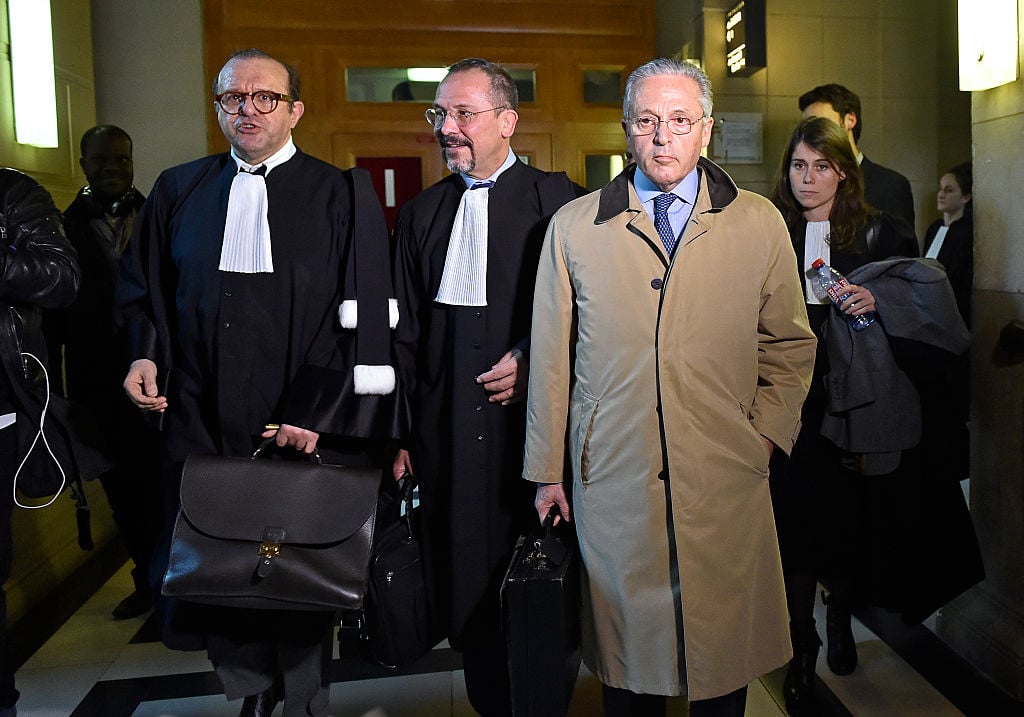
In a stunning twist, a court in France has voided the 2018 decision to acquit the powerful Wildenstein art-dealing family on charges of tax fraud and ordered a retrial of the allegations. It is not clear when the retrial will begin.
The news, first reported in The Guardian, prolongs a legal saga that has already dragged on for several years and come before French courts twice. In July 2018, a Paris appeals court cleared the family, for a second time, of defrauding French tax authorities out of millions of euros.
Alec Wildenstein (L), nephew of French American art dealer Guy Wildenstein, arrives for a trial over tax fraud in Paris on September 22, 2016. Courtesy of AFP/Getty Images.
The family members who were charged, and who faced up to four years in jail, included Guy Wildenstein; his nephew Alec Wildenstein, Jr.; and his brother Alec’s widow, Liouba Stoupakova. A notary, two lawyers, and two managers of trust funds held in Guernsey and the Bahamas were also charged. All denied the accusations.
The prosecutor had asked for Guy to be fined $307 million (€250 million) and demanded that the Wildenstein family pay $752 million (€616 million) in taxes owed.
Guy Wildenstein’s lawyer, Hervé Témime, told the Guardian that the development would afford him the opportunity to “obtain another acquittal” for his client. He declined to comment further when reached by Artnet News.
The original trial crumbled when a judge ruled that there was not sufficient evidence to show that family members knowingly committed fraud, while also citing shortcomings in the investigation. An appeals court upheld the acquittal in 2018.
At the time, Témime called the verdict “the only possible decision” in the face of a “criminal fiction” alleged by the public prosecutor, according to the French paper Le Parisien.
Today, however, France’s highest court, the Cour de cassation, annulled the acquittal and granted prosecutors’ request for a retrial of one of France’s biggest tax-fraud cases, which aimed to untangle a web of trusts and holding companies that spanned the Channel Islands and the Bahamas.
In the latest ruling, the court determined that the prosecution was not, in fact, operating outside the statute of limitations in the original trial, and that the law at the time did not clearly specify whether assets placed in trusts needed to be reported to the tax administration. A spokesperson for the court said the case would likely not be taken up again for at least a few months.
Guy was the heir and now the patriarch of an art-dealing dynasty with businesses around the world. At the time of the acquittal, France’s public prosecutor told Artnet News it was pursuing a further appeal against the judgment.
The trial, which kicked off in late 2016, exposed tensions and rifts within the Wildenstein empire, including Stoupakova’s assertion at trial that she is “at war” with the family. Stoupakova, who is estranged from the Wildenstein clan, has battled over her share of the proceeds from her late husband Alec’s trusts. He died in 2008.